Basic Addition Skills Normal Numbers Worksheets for Ages 4-9
7 filtered results
-
From - To
Enhance your child's math journey with our Basic Addition Skills Normal Numbers Worksheets, designed for ages 4-9. These engaging and interactive worksheets will help young learners grasp fundamental addition concepts, building confidence and reinforcing number recognition. Our carefully crafted exercises encourage fun and effective practice, helping children understand and solve addition problems with normal numbers. With a variety of activities, children will enjoy learning through colorful visuals and relatable scenarios. Perfect for classroom use or home study, these worksheets serve as a valuable resource for developing essential math skills that will benefit your child for years to come. Start simplifying addition today!
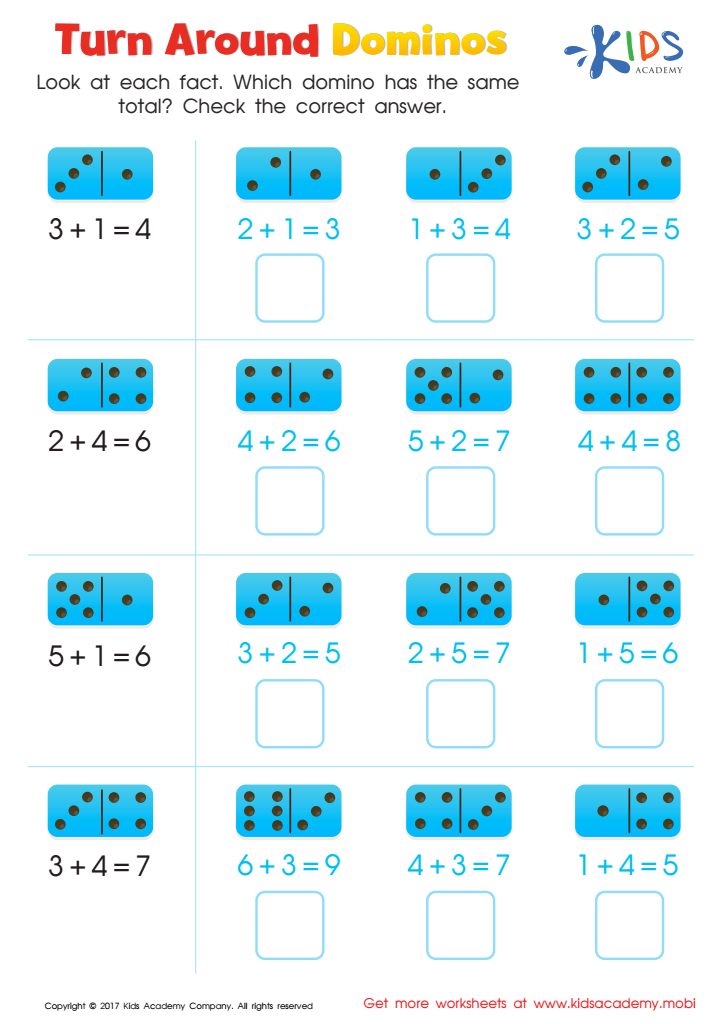

Turn Around Dominos Worksheet
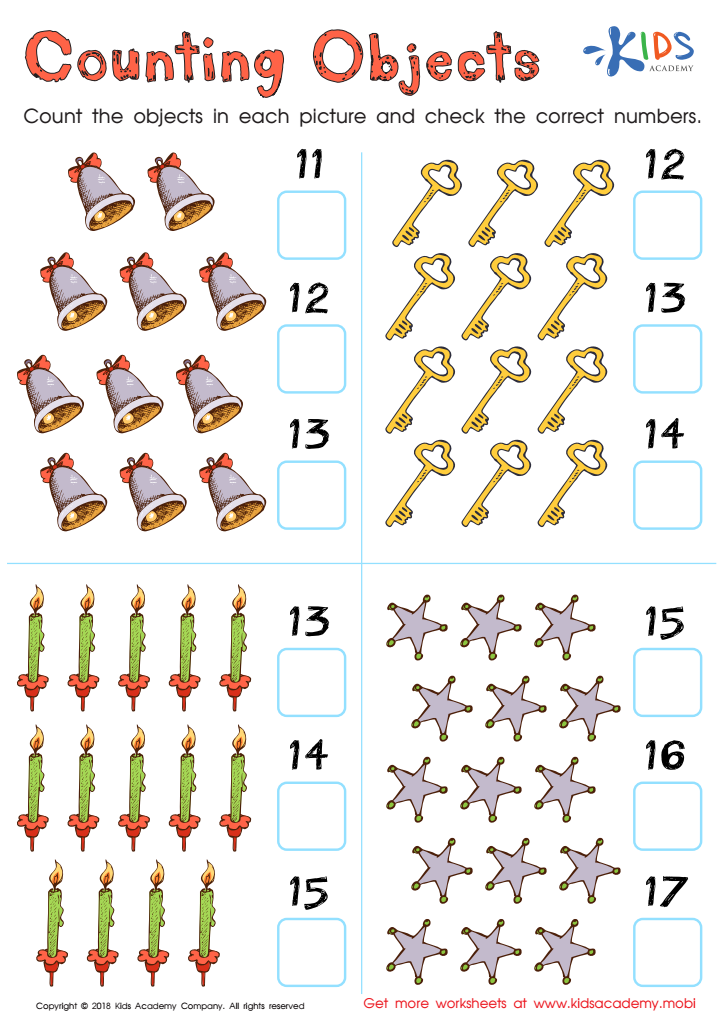

Counting Numbers Worksheet For Kindergarten
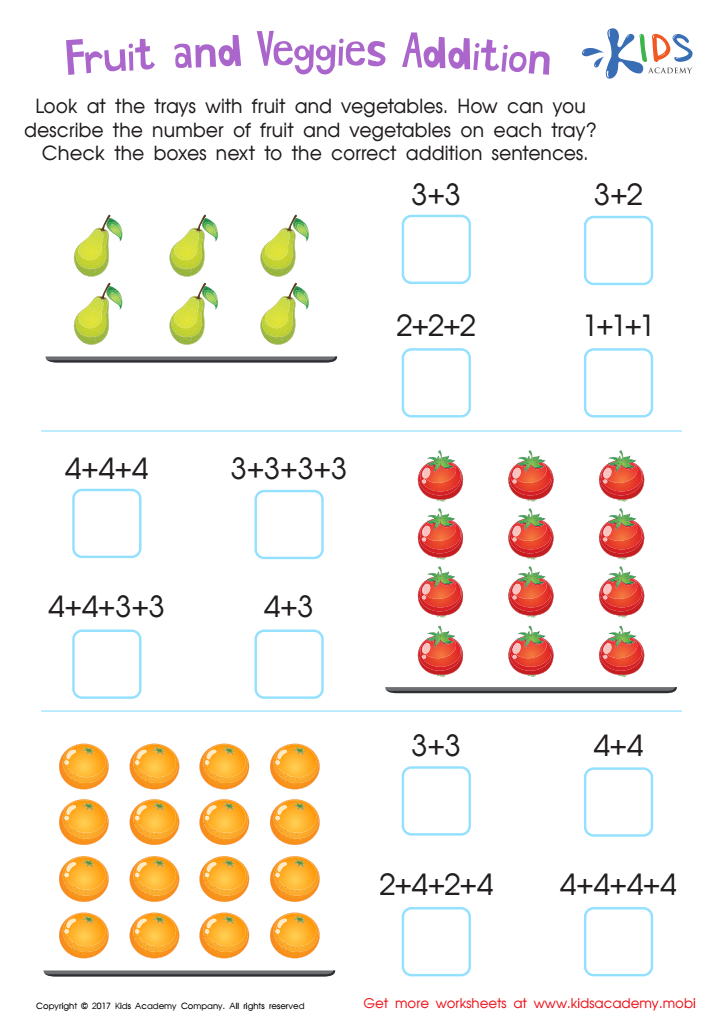

Fruit and Veggies Worksheet
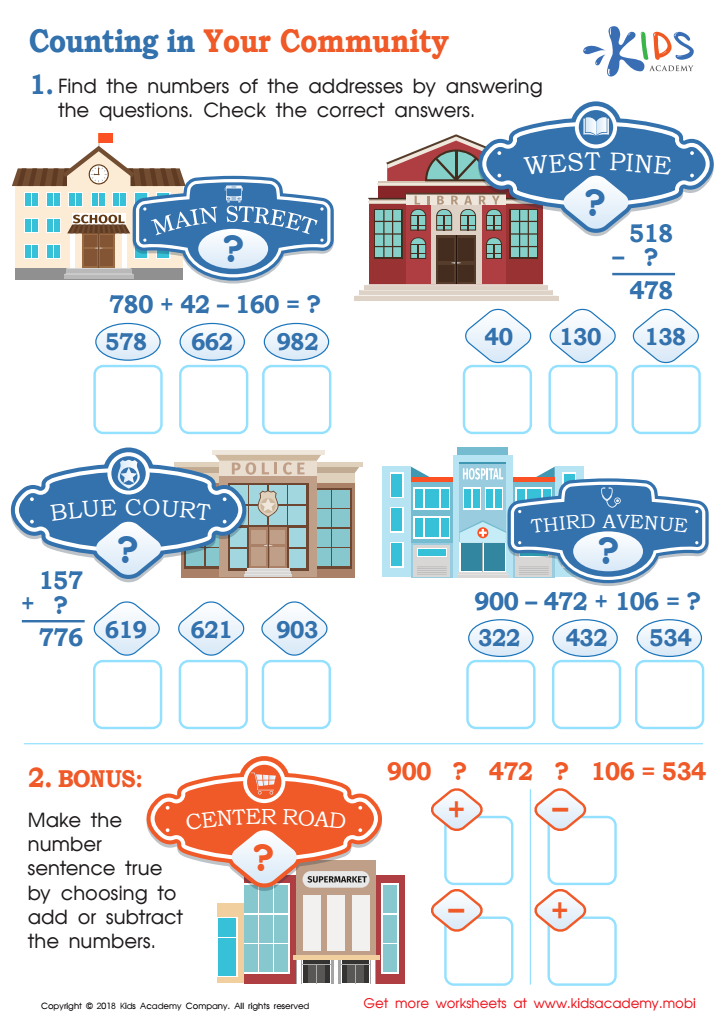

Counting in Your Community Worksheet
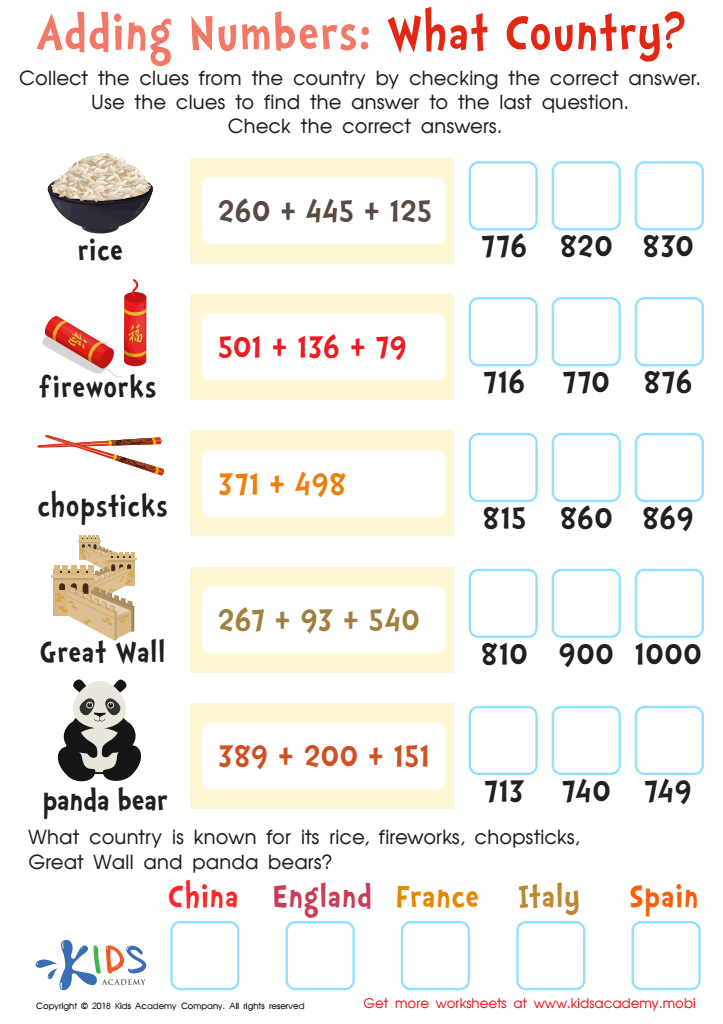

Adding Numbers: What Country Worksheet
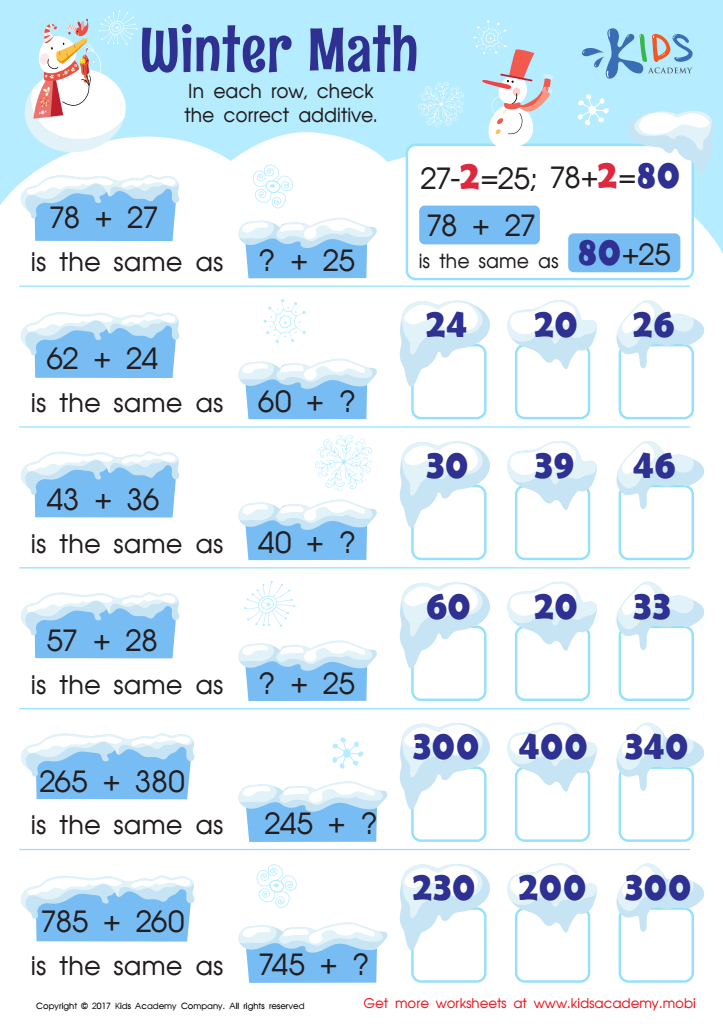

Free Addition Worksheet
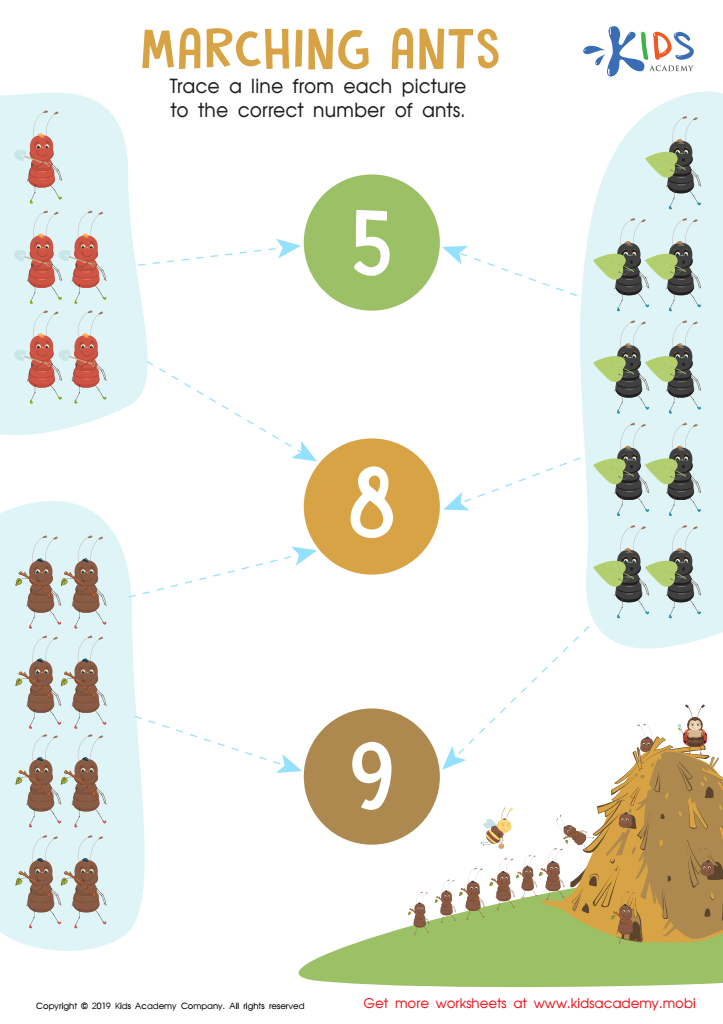

Marching Ants Worksheet
Basic addition skills for ages 4-9 are invaluable for a child's cognitive development and overall academic success. During these formative years, children are mastering foundational mathematical concepts that will serve as the building blocks for future learning. Proficiency in basic addition helps children understand larger mathematical processes, fosters problem-solving abilities, and encourages logical thinking.
Parents and teachers should be actively involved in cultivating these skills as they enhance a child's confidence and enthusiasm for learning. When children can perform simple addition, they gain a sense of accomplishment that motivates them to tackle more challenging mathematical concepts. Furthermore, these skills are critical for real-life applications, such as handling money, measuring ingredients in cooking, and keeping track of time, making mathematics relevant beyond the classroom.
In addition, integrating basic addition into everyday activities can nurture a supportive learning environment. Engaging children in fun math games, using visual aids, or incorporating life situations can make learning enjoyable. Ultimately, fostering basic addition skills at a young age sets the stage for lifelong learning, greater academic achievement, and the development of essential life skills, making it a priority for both parents and educators.
 Assign to My Students
Assign to My Students
















